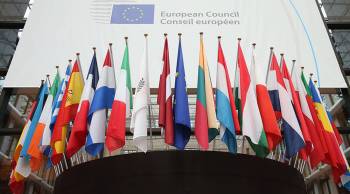Bush tightens Sudan sanctions
TEXT OF STORY
KAI RYSSDAL: Today, President Bush directed the Treasury Department to tighten the already-existing economic sanctions against Sudan. Thirty companies owned or controlled by the government in Khartoum will be barred from doing business with the U.S. financial system.
But it’s already a crime for American companies or financial institutions to do business with Sudan. So we asked Marketplace’s Jeff Tyler what’s new this time.
JEFF TYLER: 0ne-hundred sixty-two Sudanese companies have now been barred from doing business with the U.S. American officials believe some of those firms are trying to circumvent the sanctions through the use of front companies or third-country intermediaries.
Adam Szubin is with the Treasury Department:
ADAM SZUBIN: We know that the government of Sudan has sought to and continues to seek to access the U.S. financial system and the U.S. dollar to process large trade transactions, most notably its oil transactions.
But many observers say the new measures are mostly symbolic.
Sebastian Mallaby with the Council on Foreign Relations says Sudan is already commercially isolated.
SEBASTIAN MALLABY: Even if these new sanctions do constitute in some marginal way a ratcheting-up of that isolation, I don’t think it’s going to make a big difference.
In fact, Mallaby says the Sudanese likely feel less pressure today than they did three years ago. That’s because Sudan has been repeatedly threatened with economic sanctions and military action, but the international community has failed to follow through.
If we really want to pressure Sudan, Mallaby says, we should be putting pressure on its largest trade partner — China.
MALLABY: In one year’s time, we’re going to have the Beijing Olympics. And when the world’s eyes are on China, China does not want to be profiled as a major-league supporter of genocide and human rights abuser.
China’s assistance is necessary in order to pass a proposed new United Nation’s Security Council resolution.
Again, Adam Szubin with the Treasury Department:
SZUBIN: As important as the U.S. financial system is, to the extent that the U.N. can impose stricter sanctions on the government of Sudan, that of course has an exponentially greater impact.
But don’t hold your breath waiting for China to cooperate. Today, a Chinese spokesman defended his country’s financial ties to Sudan, saying that, rather than sanctions, investment is the best way to stop the bloodshed in Darfur.
I’m Jeff Tyler for Marketplace.
There’s a lot happening in the world. Through it all, Marketplace is here for you.
You rely on Marketplace to break down the world’s events and tell you how it affects you in a fact-based, approachable way. We rely on your financial support to keep making that possible.
Your donation today powers the independent journalism that you rely on. For just $5/month, you can help sustain Marketplace so we can keep reporting on the things that matter to you.


















